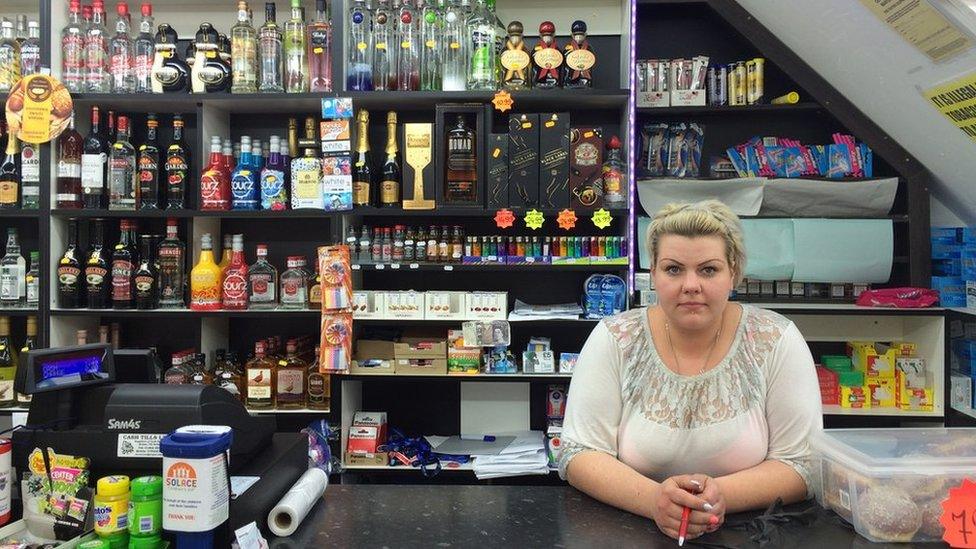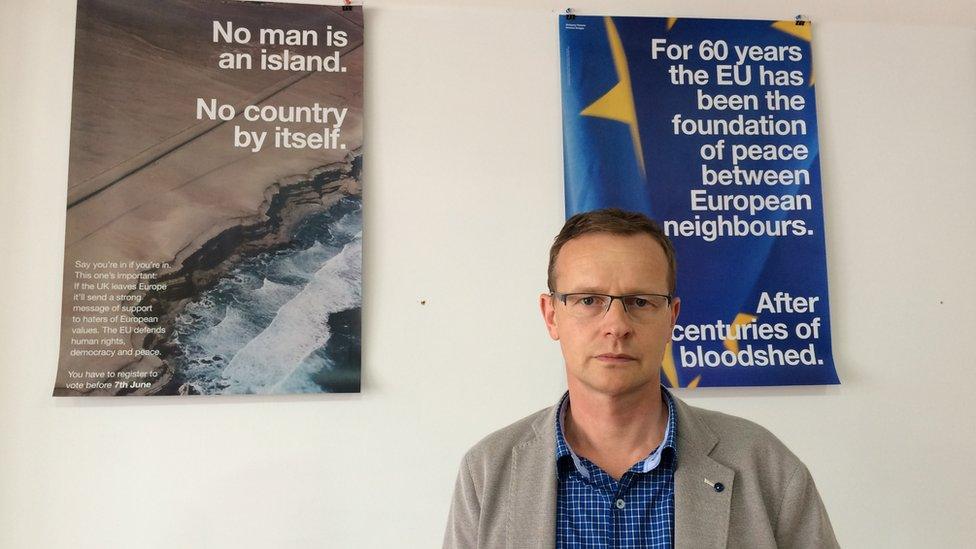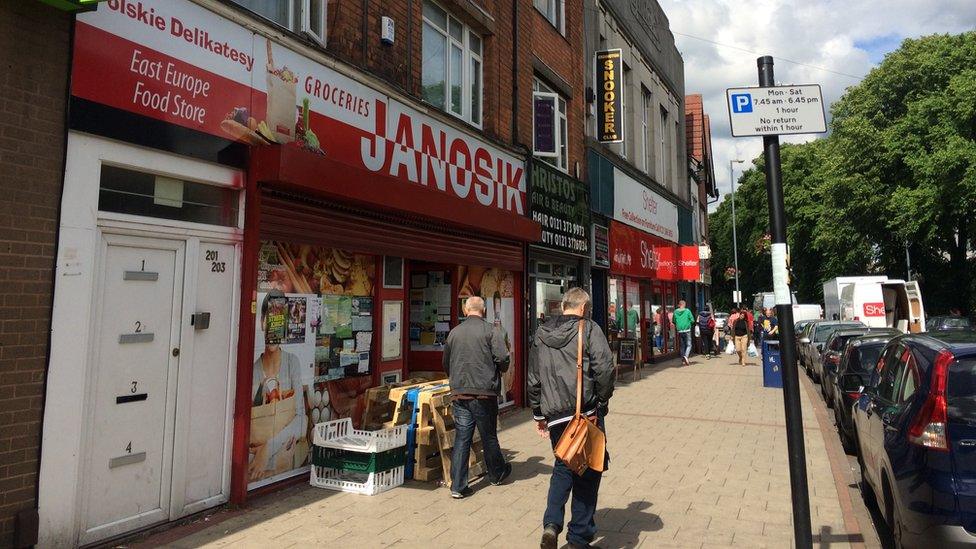Birmingham's Polish immigrants: 'Who will do our jobs?'
- Published

Wioleta Szatkowska has been working in England for 10 years
There are more than 50,000 Polish immigrants living in the West Midlands, many of whom settled after Poland entered the EU in 2004. What does the referendum decision mean for them?
On Erdington High Street, five miles north of Birmingham city centre and home to one of the city's largest Polish communities, people are facing up to what's happened.
There's confusion, though. What will it mean for the thousands of Poles who work here; have raised their families here; pay their taxes?
Wioleta Szatkowska, 32, originally from Gdansk, works at Polish shop Tanioszka.
"I think people are scared. If we must go back, we don't have a house - what do we come back to?
"I have been here 10 years. My husband is here. My daughter is at school here.
"Many people are on benefits, but I work. This is not good for people who pay their taxes.
"I think England does not realise what it is doing. What happens if we all have to go home? Who will do our jobs?"
Martin Anderson, aged 45, came to England from Silesia in 2006.
"I was very surprised when I saw the result," he said. "I was sure they would stay in the EU.

"The next 10 years will be really hard for British people," said Martin Anderson
"I've already said to my partner 'maybe we should go'. We've thought about Tenerife.
"This is such a bad decision for the country, for the economy. Only together we can be strong.
"I don't want to say the empire is finished, but the next 10 years will be really hard for British people."
Mr Anderson runs the Erdington Welcome Centre. It opened in January with the help of the Big Lottery Fund and is the base of the Polish Expats Association, working to bring the community together.
"We are quite sad here as an organisation," he said. "Our job is to help people be involved in English communities.
"Our project now... it's not on hold... but we don't know what's happening. Immigration will stop, so who will we help?"
On the walls of the centre are photographs of Polish immigrants and their British success stories. There's a graphic designer, a hairdresser and a carpet installer.

Erdington, five miles from Birmingham city centre, has a large Polish population
Next to an image of sound production engineer Alan Dothasz, who has also worked as a lecturer and a DJ, is the quote: "Life in England inspired me to do new things."
"I do understand the frustrations of the voters," said Mr Anderson. "They think 'Polish people are stealing our work'.
"But when we came here there were plenty of vacancies. Even now, if we left, I don't think English people will want to do all our jobs."
Across the road, Asia, 28, works in a Polish supermarket. "I think many people are scared," she said.
"I've been here for five years - I work, work, work. I'm good for this country - I pay my taxes. I'm never sick.
"In Krakow, I'm a teacher, so I may go back home. But I'm sad for my friends who may not be able to stay."
At Janosik food store, the mood is a bit more upbeat. Families are queuing up to pay for their shopping, chatting and laughing with staff.
"Nobody has even mentioned the vote in here today," said manager Anna, 29.
"When I checked the news, it said it would take maybe two years for anything to happen. So we will worry about it then."